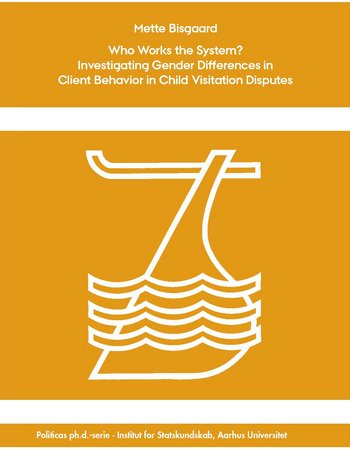Mette Bisgaard
Who Works the System? Investigating Gender Differences in Client Behavior in Child Visitation Disputes

This dissertation takes its point of departure in an empirical question about how mothers and fathers behave in child visitation rights disputes in light of public discussions about gender discrimination against fathers. Do mothers and fathers have different gendered strategies and behaviors when they interact with the Danish State Administration? (Now: The Agency for Family Law). The dissertation draws on theories from public administration about street-level bureaucracy, sociological theories about welfare encounters and client behavior as well as sociological and psychological theories about gender differences. Recent public administration research focuses mainly on bias in public authorities’ decision-making, but we know little about how clients interact with bureaucracy and how they try to influence the process and the decision-making. In order to paint a comprehensive picture of the parents as clients in these cases, the dissertation investigates their behavior before, during and after the encounter. Overall, the dissertation shows that mothers have more agency than fathers in a child-related policy area like child visitation disputes. The mothers appear as more powerful and strategic actors. The differences in mothers and fathers’ behavior might be due to mothers’ dominance and fathers’ subordination in the context of child visitation disputes. This difference in power is partly shaped by social norms about motherhood and fatherhood and legal roles as resident and non-resident parents. Although the role of fathers has changed over the last decades, child- and family-related areas are still the mothers’ domain, which puts the mothers in an advantageous position.
![]() Ophavsretten tilhører Politica. Materialet må ikke bruges eller distribueres i kommercielt øjemed.
Ophavsretten tilhører Politica. Materialet må ikke bruges eller distribueres i kommercielt øjemed.